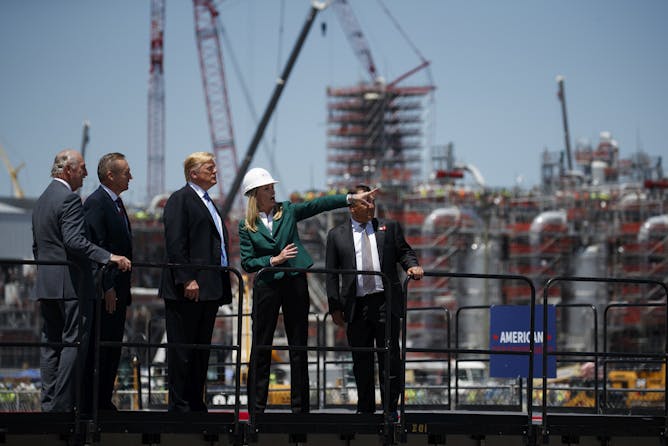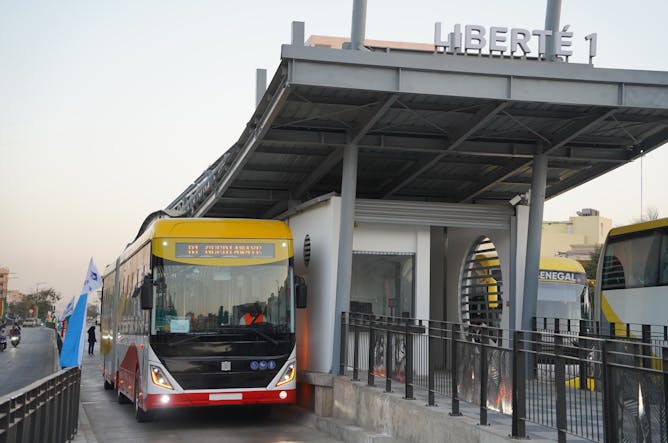|
The problem with unpredictable leaders is, by their very nature, it is hard to predict what they might do. But with Donald Trump we are at an advantage; we have been here before. And we know enough about Trump’s record, his style of governance and what he has said in the election campaign to make a fair analysis of what is to come.
Indeed governments around the world are already preparing for what they perceive to be coming down the pipeline: tariffs, trade wars, shifts on the environment and a somewhat unorthodox approach to diplomacy that can make it difficult to discern who is a friend of Washington, and who a foe.
Take Europe. As University of Surrey’s Amelia Hadfield writes, Trump has been ramping up his criticism of NATO of late, suggesting that he would encourage Russia to do “whatever the hell they want” to allies who fail to pay their fair share. “Trump’s options regarding Ukraine are simple: either arm it, or deny it aid,” writes Hadfield, “The former risks freezing battle lines and forcing an imperfect peace on Ukraine, the latter gives Russia’s President Vladimir Putin a satisfactory victory, bringing an aggressive Russia to the very doorstep of the EU and NATO.”
Similarly, “a serious question mark hangs over Trump’s commitment to the defence of Taiwan and other treaty allies in Asia, including the Philippines, South Korea, and potentially Japan,” writes international security expert Stefan Wolff.
As to the Middle East, the ripples of Trump’s victory are already being felt. While the votes were still being counted, Iran’s currency was plummeting. Traders in Tehran fear a return of the “maximum pressure” strategy that previously hurt Iran’s economy, as well as a freer hand for Israel to strike critical facilities within its adverdsary’s borders, Brandeis University’s Nader Habibi explains.
|

Donald Trump tours a liquefied natural gas terminal under construction in Louisiana in 2019.
AP Photo/Evan Vucci
Gautam Jain, Columbia University
While he hasn’t released an official plan, Trump’s playbook the last time he was in office and his frequent complaints about clean energy offer clues to what’s ahead.
|
|
|
-
Chee Meng Tan, University of Nottingham
China’s current economic crisis could worsen if Trump follows through on upping tariffs.
-
Matthew Sussex, Australian National University
The global implications of a confident and unfettered Trump 2.0 will depend very much on what foreign policy path he charts and whom he decides to appoint to key positions.
-
Amelia Hadfield, University of Surrey
Europe has started to prepare for economic challenges that a Trump presidency might throw at it.
|
|

MJ (Thinus) Booysen, Stellenbosch University; Joubert Van Eeden, Stellenbosch University
Sub-Saharan Africa is lagging behind in the transition to electric cars and motorbikes. Investment in local manufacturing, renewable energy and storage systems to supply charging stations is needed.
|

Jane Barnwell, University of Westminster
Paddington explores the meaning of home in his new adventure back to Peru
|
|
|
-
Albert HiuKa Fok, McGill University; Sabrina Chierzi, McGill University
The transplantation of astrocytes — a type of brain cell as common as neurons — may provide hope of treatments or cures of some neurodegenerative disorders.
-
John Aerni-Flessner, Michigan State University; Chitja Twala, University of Limpopo
A seven-year diplomatic dispute over the land earmarked for the ski resort ensured it was never built.
-
Manjeet Ridon, De Montfort University; Debra Benita Shaw, University of East London; Diana Wallace, University of South Wales; Emily Zobel Marshall, Leeds Beckett University; Inés Gregori Labarta, Lancaster University; Sarah Trott, York St John University
From a longlist of 13, six novels have been shortlisted for the 2024 Booker prize. Our academics review the finalists.
-
Teresa Scassa, L’Université d’Ottawa/University of Ottawa
Neither prospective school board social media lawsuit wins, nor proposed Ontario or federal privacy or AI legislation, would prevent problems related to rampant processing of human-derived data.
|
|